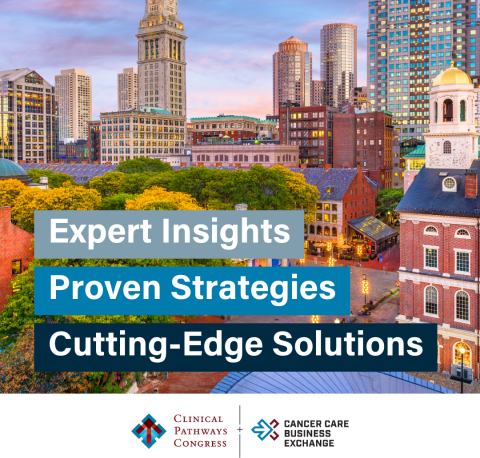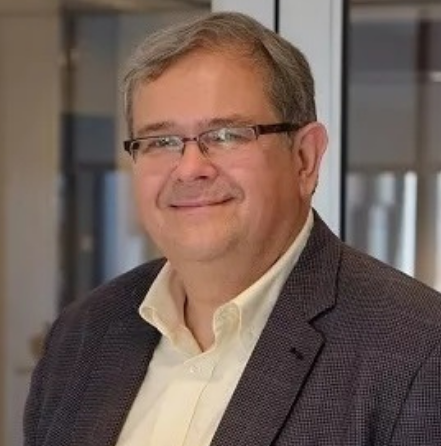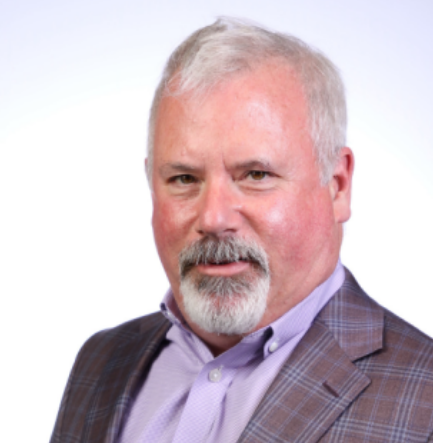Recognizing the Importance of Primary Care in Cancer Care Delivery
In this episode of Breaking Down Health Care, John Hennessy and Dr Michael Kolodziej explore the undervalued yet critical role of primary care in the health care ecosystem—especially in oncology—highlighting its impact on early detection, care coordination, survivorship, and the pressing need to restore respect and resources to this foundational medical field.
John Hennessy, MBA: Welcome, friends, to this edition of Breaking Down Health Care. My name is John Hennessy. I'm a principal at Valuate Health Consultancy, and I'm talking to my good friend, Mike Kolodziej. Mike, you do a lot of things, so it's hard to put a title on what you do, but you're certainly the author of a Substack called Breaking Down Health Care.
Today, we're going to talk about primary care. You note in your piece that you never really had an interest in primary care, but your daughter does. They are important people in the health care system, generally, but also for those of us who focus on oncology.
Michael Kolodziej, MD: As you note, I opened the post by saying that I went to school at Washington University in St. Louis, and I trained at Penn. Those are not primary care shops. They view themselves as institutions that train physician-scientists and the next generation of academic physicians. But my daughter is at SUNY Buffalo, and they do view their mission as training primary care doctors.
Let's just say that I think it's clear that you can plant the seed early in the minds of medical students and medical residents and give it a chance to germinate. I'll add that, ironically, I don't do oncology anymore, but one of my jobs now is to do primary care in the volunteer clinic where I go a couple of times a week. I'm back to my roots, if you will.
I have learned that it can be remarkably fulfilling. I saw this patient who had a cough, and some of the other doctors there had seen her and had treated her for reflux, allergies, and all this other stuff. I'm listening to her, and I said, "It sounds like you have asthma. I'm going to treat you for asthma because I don't have access to pulmonary function tests (PFTs)."
She came in the next time and she said, "I want to give you a big kiss. I haven't coughed since I saw you." It can be just so fulfilling, but I think there are headwinds.
Hennessy: When I was thinking about this, we get very focused on oncology, but people get to oncology often through primary care. Can you talk about some good experiences there and maybe the challenges? You've worked in rural markets, or certainly your practice sites have had rural influence. When there aren't primary care physicians in those environments, how does that change that journey for the patient getting to oncology?
Dr Kolodziej: I would say a couple of things. First of all, I think you can talk to any oncologist, and they will tell you that having a good primary care doctor on the care team is worth its weight in gold. Why is that? Because the things we, as oncologists, do to our patients can have primary care consequences. Depending on the skill of the primary care physician, the primary care physician recognizes that a certain problem is actually better managed by the oncologist. That kind of coordination of care really does lead to better health outcomes.
The second thing, of course, is that primary care doctors are largely the first line of defense when it comes to cancer screening. A good primary care doctor is mindful of preventive health and cancer screening and is thoughtful about evaluating the symptoms of their patients so that early intervention can occur.
Now, this is supported by fairly extensive literature that shows that patients who have a good primary care physician relationship have better health outcomes across the board. They cost the system less money. Why? Because they don't come in with more advanced disease. They don't wind up on dialysis because they're diabetic. They don't wind up in the emergency room (ER) in our inpatient unit because their asthma was so poorly controlled. Primary care doctors really should get a lot of the credit for when things go right. And yet, as I say in the post, primary care doctors are the Rodney Dangerfields of medicine.
Hennessy: It's fascinating. One of our friends, Kumar Ethirajian, talks about this a lot. He takes care of patients with prostate cancer. Many of those patients don't die of prostate cancer, they die of primary care-related illnesses. He talks about the need, even during treatment, to have that good relationship with primary care so that he is not taking on things that just aren't his cup of tea. He knows that if patients are not being assessed for their cardiovascular risk, he's not doing everything he can to make sure that patient journey as is as good as possible.
Dr Kolodziej: There's no doubt that's a true statement. Again, I love anecdotes. Patients with a diabetic tendency who get treated for non-Hodgkin's lymphoma always get prednisone, and they always wind up hyperglycemic. I've had patients wind up in diabetic ketoacidosis (DKA) because I was not attentive enough.
The truth of the matter is, though, that if you have a good relationship with the primary care doctor, in terms of collaboration and coordination of care, those kinds of things can be avoided. That's a really good thing.
Hennessy: When I think about this, I go back to when I first started in health care. There used to be the doctor's lounge. The primary care doctors saw their patients in the hospital. That's where they ran into subspecialists. That's not the way things work anymore. Does that change the relationships among the physicians?
Dr Kolodziej: I think it has changed it a lot. A lot of primary care physicians feel like they’re off in this silo. The problem with primary care is partially that they don't get paid. The pay is terrible, and they don't get paid for the good stuff they do.
The other thing is, they just don't get the respect. My friend Louis Jacques, who used to work at the Centers for Medicare and Medicaid Services (CMS) and was a primary care doctor early in his career, says, "Nobody looks at the primary care doctors the final stop."
Their word is never definitive, and I think they've lost respect. Let's face it, the specialists are the rock stars. They get to use all the cool new stuff, all the cool new interventions, all the cool new medicines. They're the guys that get credited for saving lives. And yet, the primary care doctor is responsible for making sure that child is on their vaccine schedule. The primary care doctor is responsible for keeping that hemoglobin A1C less than 7 with appropriate dietary manipulations.
We have this huge chasm now, and I think the doctor's lounge example is just part of how we got there. It's an unfortunate fact that we have not appropriately valued primary care in American medicine.
Hennessy: It's interesting, we've talked about primary care before the cancer diagnosis, during the cancer journey. One of the big challenges I think we have in oncology is that we're too good. We have a quickly growing survivor population, a survivor population that's bonded to its oncology care team, and a lack of primary care on the back end of that.
If you're a practice and, at some point, you have to hire more oncologists, if you're doing that sort of survivorship care—that’s expensive primary care—what are the keys to being able to transition patients from the oncology practice back into primary care? How have you seen that be successful?
Dr Kolodziej: That's a very important topic for many reasons, including the fact that the survivorship population is just exploding. That’s great, but there's a manpower shortage in oncology. We don't have enough oncologists.
Now, a lot of oncology practices have turned to the use of Advanced Practice Providers (APPs) to manage their survivorship patients. Back when I was practicing, I had a great APP that I worked with. At the beginning of the day, we'd look at the patients that were scheduled to come and see me. There were some that were on her schedule, most of them were on mine, and I would say, "Why don't you see A, B, C, D, E?" Most of them were survivorship patients. It's just that there were no big decisions to be made in those patients, not to mention the fact she was really good at that.
But the ultimate solution probably does involve getting the patient back in the hands of the primary care physician. Why? Because they look at the world differently than the oncologist does. The oncologist looks at everything as a potential crisis or disaster. The primary care doctor has a much better long view on how that patient should be followed for cancer screening outside of the cancer which is being treated; cholesterol and blood pressure management, bone health, sexual health—there are 9 million things that the primary care doctor is better at.
In addition, we know that most aging Americans have more than one doctor. They're way better at coordinating the care. You don't get into this problem with handoffs, who's responsible for what and when, and all this stuff. The challenge is partially that we've gotten so comfortable with the system as it is that we're somewhat hesitant to change it.
When I was in practice, I loved seeing my success stories. It made me feel really good. The patients liked it too. However, there is no evidence that health outcomes of cancer patients who are returned to their primary care doctor are inferior during survivorship care.
There is also good evidence that primary care doctors are nervous about it, and there is good evidence that patients are nervous about it too. We just need a retooling of this idea of who is the best person to provide survivorship care. Of course, we also have to figure a way to make sure that primary care doctors get paid fairly for doing that kind of stuff.
Hennessy: I'm fortunate to be able to work with a couple of projects like that. Kaiser Permanente in San Francisco has what they call an onco-PCP program, where they have a primary care physician who is essentially attached to the oncology service line to manage these issues. There's a group called Survivor Healthcare out in Salt Lake City that's working with Utah Cancer Specialists to transition patients from the hematology-oncology care to primary care, but your point is well taken.
These are complex patients. This is not your standard person who shows up in primary care with a runny nose. There are some economic things here, and maybe just a commitment to managing these types of patients. I'm thinking about the CHALLENGE study that we talked about at the American Society of Clinical Oncology (ASCO) conference not too long ago. This isn't simply, "How are you doing?" We're talking about fitness and almost a wellness type of care, which some people are interested in. That's a very different approach than seeing a bunch of patients come into primary care.
Certainly, when we talk with Kaiser, if you had one additional primary care doctor, would you assign them to managing these survivors or do you put them in the frontline? In both cases, we're understaffed.
Dr Kolodziej: I say in the post that the fact of the matter is, if you have a stage I patient with breast cancer that you're treating with hormonal therapy, they've got a much greater chance of dying of heart disease than they do of breast cancer. We have not paid close enough attention to this topic.
Hennessy: This is one of the many topics we're going to pay close attention to. Thanks, Mike, and thanks to you for watching. If there's something you'd like us to discuss or there's one of Mike's chapters in his Substack, please reach out to us. We'd love to add that to our conversations.
© 2025 HMP Global. All Rights Reserved.
Any views and opinions expressed are those of the author(s) and/or participants and do not necessarily reflect the views, policy, or position of the Cancer Care Business Exchange or HMP Global, their employees, and affiliates.













